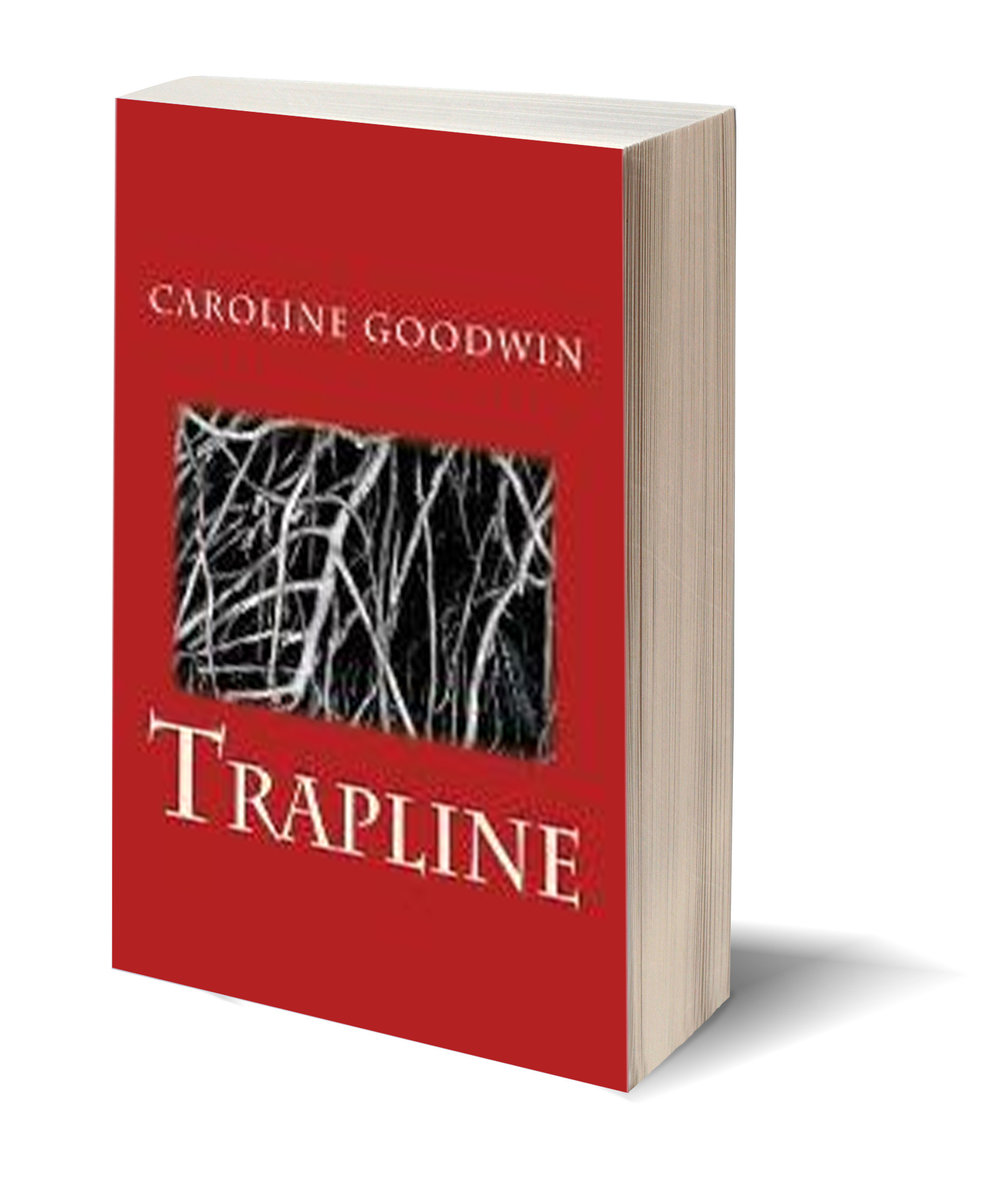Trapline
By Caroline Goodwin
JackLeg Press |
 |
|---|
Reviewed by Philip Kobylarz
There is a venerable book that warns us against loving the things of this world. But it does not say we cannot love the sounds of our many names for those things and the endless meanings those things represent. This realm of spiritual consideration is the territory Caroline Goodwin's poetry visits, sketches, records, then releases, in her new book Trapline.
If the term "ambient radiance" doesn't exist, it should now in order to describe these poems that are governed by craft and yet seem aleatoric in their bounty of details. Rooted in Deep Imagism, Goodwin's work wrestles with an eternal conundrum: what does the natural world, if it even cares about us at all, have to teach us? It is not clear if Trapline resolves this question conclusively; however, Goodwin unearths some brilliant hints at possible answers, leaving them like flotsam and jetsam intentionally arranged by the syncopation of post-storm waves.
As an Alaskan transported to the Bay area, her work is informed by a certain aesthetic that occurs in places where the logic of civilization intersects with the great nothing/everything that is the anima of nature at its most resplendent. The result is a poetic aesthetic that takes the reader to places almost hallowed in the beauty of the visible world and reverently recorded in the richness of words.
The collection appropriately begins with an invitation to a compositional space—the end of a wharf where the tide has receded. We are asked to "come / after work when the mind / has grown plumes." In our oneness with the speaker, a pure celebration of song occurs in the naming of what the ocean reveals. The ego sloughs off and the mind's eye transforms into a lyre of perception. Now listen:
Here is the hornmouth and wentletrap
and chiton and quahog and cockle
and wrinkle of the human knuckle
that rim inside of the human eye
here a thin film an eyelid
an iris surrendering its pupil
The poet and the reader are companions, entering into being in a moment overtly ars poetical: this is how we are to give ourselves up, and in, to the world. The greatest joy of all—our ability to perceive—leads to the hair-trigger trap that must always be negotiated: whether to merely appreciate or to desire and, with either choice, what we should do with our power to see and profoundly feel? We can only wonder why so much time is spent on conflict, suffering, finances, injustice, and materialism when a poet of this caliber reminds us of the truest form of our being: phenomenology and how we tweak it.
Like extended triptychs, the works in this collection precipitate on a topic, variously render it, improvise, follow nuances, and change in differing lights. One fine series is "White-Lined Sphinx," which follows the fluttering path of a moth, a metaphorical other that represents the unthinkable loss of a child. Goodwin's elegy eschews sentimentality and the maudlin on every level, capturing the terrible sentience of pain in moments that are transformative, supple, fleeting, and real.
A lucidity permeates even her seemingly straightforward narratives that are layered with mythology, folklore, and Freudian symbolism. "In the Dream I Was Wearing Your Boots" conjures a desolate Western moment so American that there might even be a word in Athabaskan for it:
... it rained
and rained and we stayed up late
smoking on the porch until the light
began the trailer park took shape
and there was a face in the window next door
not all of the ancestors are friendly
or pleased to be called back
and the dog refused to go outside for days
There is something resolutely wild about Goodwin's vision. Her vocabularies of the exotic, the topographies of glorious desolation she peoples with raw emotion, make this book a springhouse filled with the essentials. She re-awakens us to the fact that our instincts of being and feeling in this world are, in a profound sense, of both human and animal nature.
